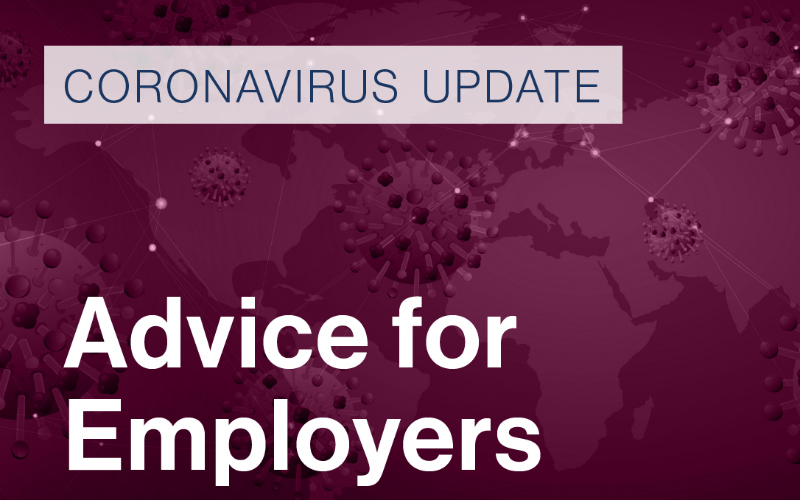
On 23rd March, the PM announced stricter social-distancing measures to tackle the spread of Covid-19, described by many as putting the UK into lockdown. The measures take effect immediately.
The PM’s announcement made it clear that enforcement powers will be introduced to give effect to the new rules. The exact details are not yet known, but we will likely see the imposition of fines for businesses and individuals contravening the guidance, as well as greater police powers to disband gatherings. The Coronavirus Bill, the emergency legislation which will extend the government’s powers for the duration of the crisis, will go before the House of Lords on Tuesday 24th March.
The First Minister followed up the PM’s announcement by reinforcing the need for these measures in Scotland, describing the situation as a lockdown. In its latest published statement, the Scottish Government reiterated the strict application of the UK-wide measures in Scotland. Police Scotland will be afforded “soft enforcement” powers until formal powers take effect when the Coronavirus Bill is enacted.
The latest measures, detailed below, will be reviewed in 3 weeks time.
1. The public must stay at home other than for four specific reasons
The only four permitted reasons to leave the house are set out in the Government’s published guidance. These are:
- shopping for basic necessities such as food and medicine,
- undertaking one session of exercise per day,
- for medical reasons or caring for another person, and
- traveling to and from work where the job cannot be done from home.
Many people are now asking themselves whether or not they need to go in to work, or for employers, whether they can still require their staff to travel to work. The answer needs clarification as the PM’s announcement, guidance and follow up tweets from the government send an ambiguous message. It is unclear whether only key workers, i.e. those carrying out work which is absolutely necessary, need to travel to work, or whether employees whose job absolutely cannot be done from home should also travel to work. If the published guidance and latest tweets are to be followed strictly, workers who absolutely cannot do their job from home can still travel to work even if they are not key workers. That position will hopefully be subject to further clarification as soon as possible.
2. All non-essential premises must close
On 20th March, pubs, restaurants, cinemas and theatres were all ordered close. The PM’s announcement takes this further to all non-essential shops, hotels, indoor and outdoor leisure facilities and places of worship. After the announcement, the Government published a list of exceptions which can remain open, which include:
- Supermarkets
- Health shops and pharmacies
- Petrol stations
- Home and hardware shops
- Bicycle shops
- Garages
- Car rentals
- Pet shops
- Newsagents and corner shops
- Post offices
- Banks
- Food delivery and takeaways
- Catering at hospitals, care homes, prisons, military canteens and services providing food and drink to the homeless
Businesses which do not fall within one of the exceptions must now close with immediate effect. This will be a difficult decision for many facing drastic financial consequences as a result of enforced closure. The financial support on offer from the government to support businesses in this position is evolving rapidly. Visit our blog on the Job Retention Scheme for further details.
3. Social-gatherings of two or more people cannot take place
No gatherings of two people or more can take place other than two notable exceptions:
- a gathering of people who live together;
- a gathering which is essential for work purposes.
Employers and workers will once again be asking what constitutes an essential gathering for work purposes. This exception should be approached with caution. The guidance clearly advises that workers should be minimising all meetings and gatherings in the workplace where possible. Employers need to use alternative measures where they are available, such as remote working, video-conferencing and cancelling non-essential gatherings altogether.
4. Coronavirus Bill and Self-Employment Pay
The emergency legislation has passed through the House of Commons and is appearing before the Lords on Tuesday 24th March. It will introduce extensive powers to help the UK Government respond to the crisis for as long as required, and grant additional powers on the Scottish Government to take measures locally. Key provisions include allowing retired NHS staff to return to work, enforcement powers aimed at supporting the social-distancing outlined above, and allowing employees to claim Statutory Sick Pay from day one of their absence, backdated to 13 March.
One notable amendment which is not yet included in the Bill is the introduction of Statutory Self-Employment Pay. This would force the government to introduce legislation offering guaranteed earnings to the self-employed during the crisis. The proposal envisages that self-employed workers could claim payment of 80% monthly net earnings averaged over a three year period, or £2917 per month, whichever is lower. The amendment does not currently specify who will qualify as a self-employed worker or freelancer.
If brought into force, this amendment would compel the government to offer much-needed statutory payments to the self-employed, who are unlikely to qualify for existing statutory payments other than universal credit. While the details require clarification, it is a step in the right direction in improving the support available to the self-employed who have lost most or all of their income as a result of the outbreak.
We are closely monitoring the government guidance and will issue updates as and when the situation changes. Please consult our blogs for regular employment law updates.
